Debit Cards: What They Are and How They Differ From Credit Cards
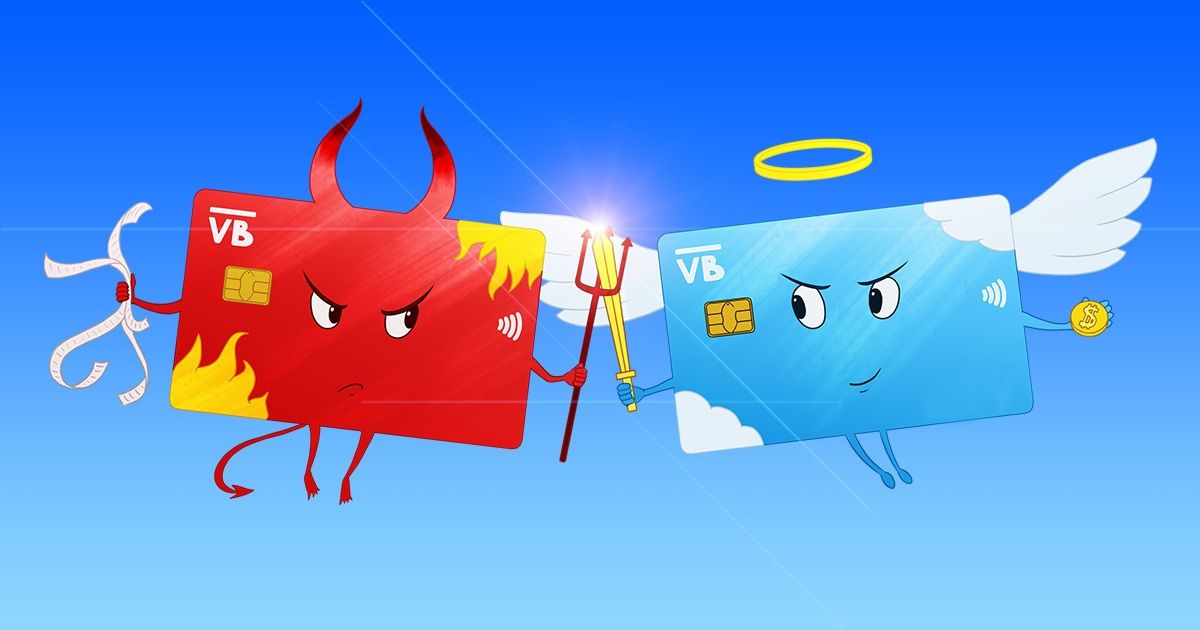
When getting a bank card, we are usually offered a choice of one of 2 options: a debit card or a credit card. These cards may look the same, but their functions and usage differ.
5-Minute Crafts would like to tell you what a debit card is, how it is different from a credit card, and which of these bank products will suit your needs better.
A debit card
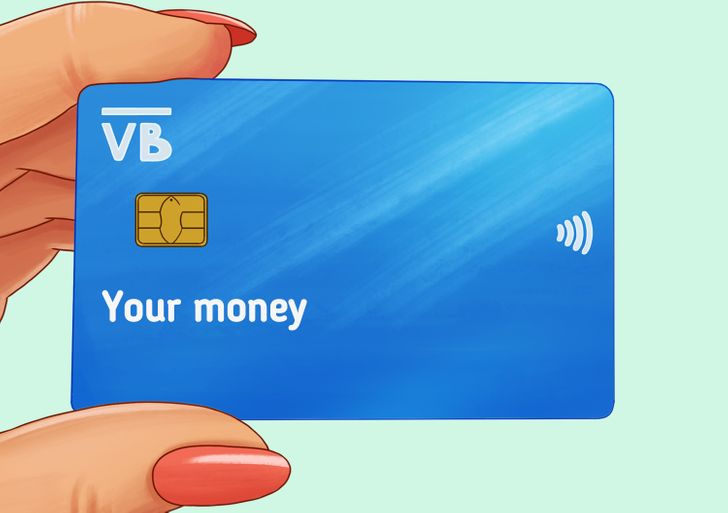
- The bank issues a debit card for you to use to access your bank account. With this card type, you can use funds without having to withdraw cash. For example, you can pay by card in a store, shop online, or transfer money from one account to another via mobile banking.
- When you use a debit card, the bank withholds the amount you spent. It’s withdrawn from your account instantly, or within 24 hours, and is kept longer at the bank (depending on the bank and the amount of the transaction).
- It’s important to maintain the balance of the current account to avoid accidental overspending or having a transaction cancelled.
- When you purchase something at a store, the seller may ask you to enter a PIN or sign a receipt, just like when you use a credit card. You will also have to enter the PIN to withdraw cash from your account at an ATM.
A credit card
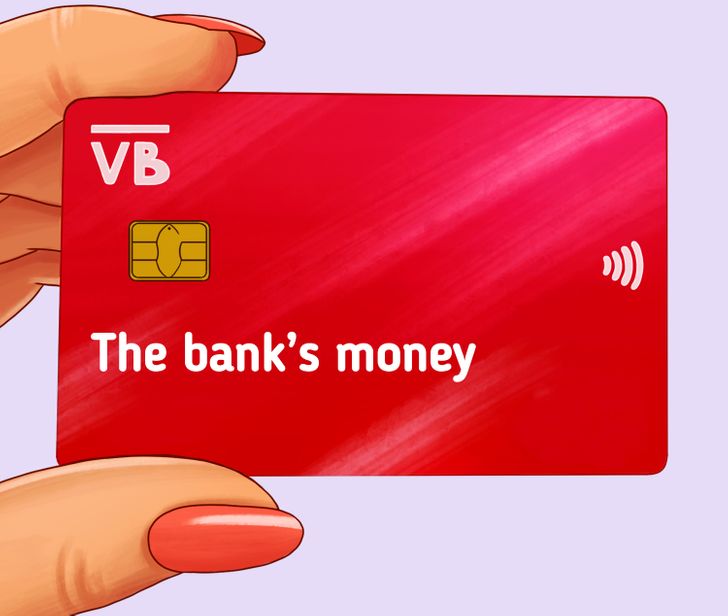
- A credit card, unlike a debit card, is not linked to your personal account, but to your credit line approved by the bank. It lets you borrow money from the bank to pay for purchases within a certain limit.
- The limit depends on how the bank evaluates your solvency. The better your credit history is, the higher your income is, and the lower your debts are, the higher your credit limit will be.
- When you use a credit card, the bank pays the seller for you. The purchase amount is automatically added to the outstanding balance and you repay the debt to the bank later.
- The bank sets a certain period when you can repay the debt to the credit account without paying interest. This is called “a grace period” and is usually 30 days or more. However, in some cases, interest may be calculated immediately. These conditions are mentioned in the loan agreement with the bank.
- If you can’t return the money within the interest-free period, the bank will charge interest for the use of the credit funds and set a period for when you need to make at least the minimum payment. If your payment is overdue, it will lead to the accrual of a fine by the bank and will affect your credit history.
Overdraft
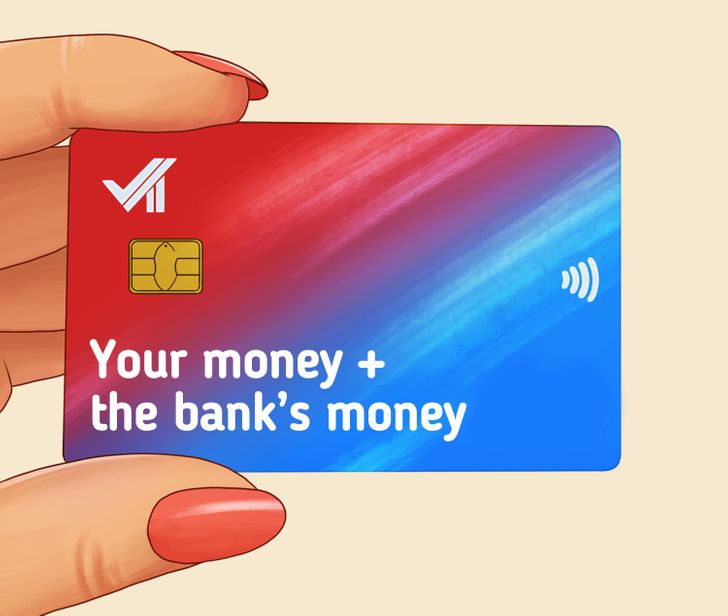
- Your debit card can also work as a credit card if you sign up for an overdraft.
- An overdraft is a bank loan that lets you withdraw money from your debit account even if there are not enough funds on it.
- Usually, a one-time commission is charged for using the overdraft and interest is charged on the outstanding balance.
- An overdraft is designed to protect you against embarrassing situations like having your card declined. For example, if when checking out of a store, you realize that your balance is $10 short to make the intended purchase.
- Just like credit card debts, it’s important to pay off the overdraft on time. Otherwise, it will lead to fines from the bank which can ruin your credit history.
What should you choose — a debit card or a credit card?
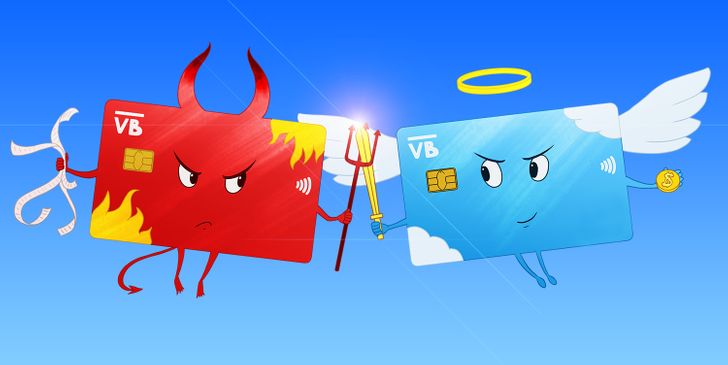
- A credit card is useful in emergency situations in your home country and abroad. If you have a credit line, you can pay sudden expenses without running out of funds in your current account. It also comes in handy when traveling: many foreign hotels, resorts, and car rentals only accept credit cards.
- If you want to improve your credit history, a credit card can be helpful too. Timely payments and no penalties will boost your credit score and reflect well on your bank statement.
- However, you run the risk of overspending and running into debt with a credit card. Therefore, if you have problems controlling your expenses, it’s best to choose a debit card. It will make it difficult to overspend as you will always be limited to the amount in your account.
- If you don’t pay off your credit card debt in full, the bank will charge interest. They may also charge a late payment fee. By contrast, there is no interest charge on a debit card, but an overdraft fee may apply if you activate it.
- Thus, credit cards are best for disciplined people who pay their debts on time and do it within the interest-free period.
Share This Article